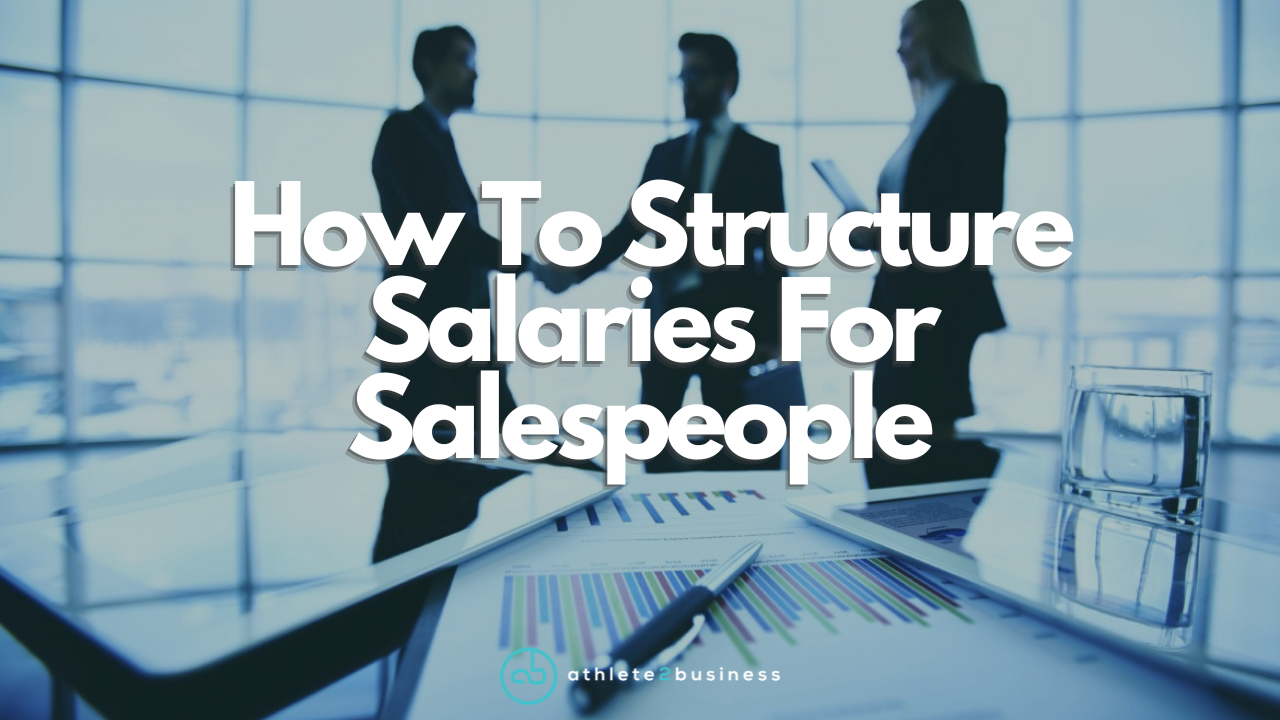The Traits Of High Performing Salespeople
The Traits Of High Performing Salespeople
The Makeup of a High-Performing Sales Professional
Sales is one of the most challenging and dynamic careers. It requires a unique combination of skills, traits, and mindset to consistently excel in a highly competitive field. High-performing sales professionals are often seen as natural-born persuaders, but in reality, they possess a powerful blend of traits and behaviors that allow them to thrive. These traits can be broken down into two major categories: the athlete mindset and the CHEC framework. Let's explore both and how they contribute to sales success.
The Athlete Mindset: Resilience, Discipline, Competitive Nature, and Grit
An athlete's mindset can be a game-changer for sales professionals. Just like athletes, top-tier salespeople need to endure setbacks, perform under pressure, and continuously strive for improvement. Here's how the athlete mindset translates into the world of sales:
Resilience: In sales, rejection is a given. A "no" from a prospect can feel personal, and the constant cycle of highs and lows can be draining. However, high performers don’t let failure stop them. Resilience enables them to bounce back quickly from setbacks, learn from their mistakes, and stay focused on their long-term goals.
Discipline: Just like an athlete follows a rigorous training schedule, top salespeople have well-established routines. Discipline is vital in maintaining consistent effort, sticking to a structured sales process, and meeting goals. It’s the ability to stay on track even when things get tough, ensuring that follow-up calls are made, research is done, and relationships are nurtured.
Competitive Nature: A healthy level of competition can fuel performance. High-performing salespeople often see themselves as competitors in a game, where closing deals is the prize. This competitive drive pushes them to work harder, push boundaries, and constantly outperform their own best.
Grit: Perhaps the most essential element of an athlete’s mindset is grit—the combination of passion, perseverance, and the ability to keep pushing forward even when things get tough. In sales, the grind is real, and success is often about persistence. The best sales professionals keep going, even when the path gets steep.
Having an athlete’s mindset means you can handle the demands of sales and maintain a focus on continuous growth, even when success isn’t immediate.
CHEC: The Essential Sales Framework
The CHEC acronym represents four essential qualities that every high-performing sales professional should cultivate: Communication skills, Humble Confidence, Emotional Intelligence, and Commercial Awareness. Each component plays a crucial role in how effectively they connect with clients, navigate challenges, and close deals.
Communication Skills: Sales is all about communication. Whether it’s articulating a value proposition, answering objections, or negotiating terms, strong communication is a foundational skill. High performers know how to tailor their message to different audiences, listen actively, and engage in meaningful conversations. Clear, concise, and persuasive communication builds trust with clients, making them more likely to buy.
Humble Confidence: Confidence is essential in sales. Buyers need to believe that the salesperson knows their product and can deliver on promises. However, humble confidence strikes the perfect balance between self-assuredness and humility. It’s not about arrogance or ego but rather a quiet certainty in one's abilities paired with the humility to listen, learn, and adapt. This quality makes clients feel valued, rather than pressured, creating stronger, more sustainable relationships.
Emotional Intelligence (EQ): Emotional intelligence is the ability to understand, manage, and influence emotions—both your own and others'. In sales, EQ helps you build rapport, navigate difficult conversations, and manage rejection. Salespeople with high EQ can recognize emotional cues in clients, adjust their approach accordingly, and build trust more effectively. They know when to push for a close and when to step back and give a client space, enhancing the likelihood of a successful sale.
Commercial Awareness: To sell effectively, it’s important to understand not just the product you're selling but also the broader market in which your client operates. Commercial awareness includes staying informed about industry trends, understanding competitor offerings, and knowing what drives your clients’ business. Salespeople with strong commercial awareness are better equipped to offer tailored solutions, anticipate client needs, and position themselves as valuable partners rather than just vendors.
Bringing It All Together: A+CHEC
Now, imagine combining the athlete mindset with the CHEC framework. The result is a powerful approach to sales that fosters resilience, continuous growth, and exceptional client relationships. This combination of traits and skills can be summed up as A+CHEC—a philosophy that emphasizes not only the technical and emotional aspects of sales but also the mental fortitude required to succeed.
A (Athlete Mindset) + CHEC (Communication, Humble Confidence, Emotional Intelligence, and Commercial Awareness) creates a high-performing salesperson who is relentless in their pursuit of excellence, adaptable to the ever-changing landscape of sales, and capable of building lasting, meaningful client relationships.
If you're looking to create a high performing sales team in YOUR business through the A+CHEC framework, get in touch with A2B now.
News





